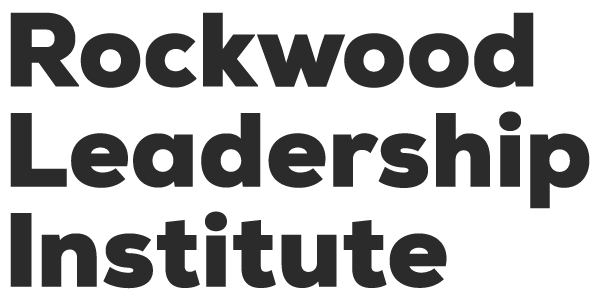My best friend of nearly 20 years and I recently moved into a house together with my 3-year-old son. She and I are trying to be partners of some kind, non-sexual significant others. We have family dinners on Sunday nights. She spends quality time with my kid. And like many partners, we disagree about a lot of things: how to season the cast iron skillet, whether it’s better to use the space heater or the furnace, or if the sponge should be left wet side up or wet side down after doing the dishes. Partnership is hard.
So, needless to say, I’ve been thinking a lot about what makes partnership work. Rockwood defines partnership as the ability to build and maintain strong interdependent relationships that advance our vision. In the midst of my personal explorations, an article arrived in my inbox that featured a bunch of organizations, including Rockwood alum organizations, working together for “common sense immigration reform.”

photo from http://americasvoiceonline.org
The group, actually a campaign, is called Alliance for Citizenship. Its members, more than 30 organizations, are partnering across issues and the people they serve to serve the people they have in common: the “11 million Americans without papers,” as they put it.
These organizations may have very different political views from each other. They may be utilizing very different strategies. And they may have very different messaging (though there’s some exciting work that came out recently that offers ten different winning ways to talk about immigrants in America). Rockwood fellowship manager TC Duong has seen this in his own work with immigrants rights leaders who are in Rockwood’s Fellowship for a New California. Within the fellowship, there are quite divergent approaches ranging from grassroots organizing to policy advocacy to legal aid. “There’s value for all these folks in coming together beyond their silos, ” says TC “but that doesn’t mean it’s not difficult.”
I’m moved just imagining what it’s like for these leaders to come together, reaching out across their differences, each coming from a place of yes, of choice: choosing what they can put aside and what they absolutely must bring to the table. (The Alliance itself uses the language of “tables” for the majority of the work it carries out: they have a “Field Table,” “Communications Table,” and “Legislative/Policy Table.”) The members come together despite their differences because in building this campaign, this complex set of relationships, they can advance their shared vision.
The courage of Alliance for Citizenship members has got me thinking maybe my housemate and I don’t need to agree on everything or even resolve some of the issues we’re arguing about for our partnership to work. But I do think I’m going to propose we come up with a shared vision. I think having an explicit big picture goal, one that represents the love and excitement and hope we both have, will make the daily irritations seem like what they are: the small stuff.

photo from http://www.heatherspencedesigns.com
The full list of Alliance for Citizenship members appears below. The list includes many organizations whose staff have participated in Rockwood programs; these appear in bold. I’ve included all the organizations participating because each one is a piece of the fabric that just may be weaving a new American flag.
What collaboration challenges have you overcome recently? Was there anything that you discovered you could let go in order for true partnership to blossom? Let us know in the Comments section below.
Alliance for Citizenship Campaign Members
Organizations that have leaders that have participated in Rockwood programs appear in bold
National Immigration Forum
Center for Community Change
Center for American Progress
Asian American Justice Center
Southern Poverty Law Center
American Civil Liberties Union
United Farm Workers
CASA de Maryland
OneAmerica
New Policy Institute
NC Latino Coalition
Pilipino Workers Center
Rights Working Group
Church World Service
Hebrew Immigrant Aid Society
Sunflower Community Action
Women’s Refugee Commission
National Immigration Law Center
Border Network for Human Rights
National Employment Law Project
National Council of La Raza (NCLR)
South Asian Americans Leading Together
American Immigration Lawyers Association
Service Employees International Union (SEIU)
United Food and Commercial Workers (UFCW)
Leadership Conference on Civil and Human Rights
America’s Voice/America’s Voice Education Fund
Pineros y Campesinos Unidos del Noroeste (PCUN)
Causa, Oregon’s Immigrant Rights Organization (CAUSA)
American Immigration Council
Lutheran Immigration and Refugee Services
Youth Coalition for Comprehensive Immigration Reform
Coalition for Humane Immigrant Rights of Los Angeles (CHIRLA)
National Korean American Services and Education Consortium (NAKASEC)
American Federation of Labor and Congress of Industrial Organizations (AFL-CIO)
